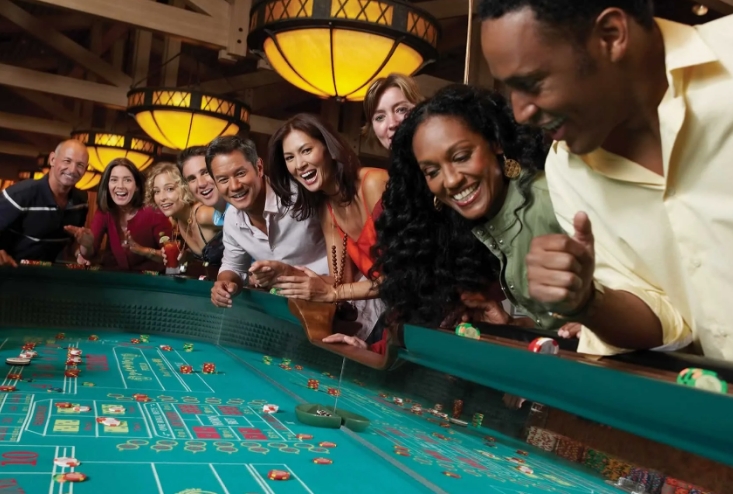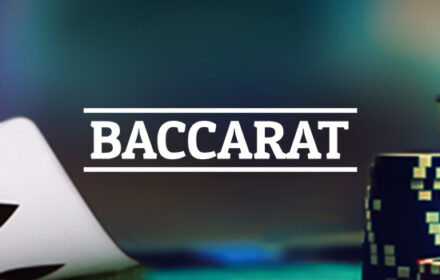The gaming hall rarely stays silent. Here, the noise of chips, the hum of the roulette, and fleeting glances are the main signals. But alongside the rules, other forces are at work. Omens in gambling games sprout through the logic of bets, turning every gesture into a ritual. Belief in details creates an illusion of control and hope for luck in a casino — fragile, but more captivating than the jackpot.
Superstitions with a history: from ancient temples to the neon lights of Las Vegas
Omens in gambling games did not originate in 20th-century casinos. Historically, any forms of risk instilled in humans the desire to tame chance. Ancient Chinese people offered food to spirits before playing dice. Romans wore amulets made from animal teeth. In the 19th century, Maltese sailors placed copper coins under the table — a symbol of profit.

Modern casinos have changed their walls, but not their essence. Superstitions have adapted to electric lamps and carpet designs. Every third player in Macau still avoids the number 4 — in Cantonese dialect, its pronunciation coincides with the word “death.”
How omens work in gambling games
Humans tend to see patterns where there are none, especially in conditions of uncertainty. Gambling triggers powerful neuroprocesses. After a win, the brain remembers what one was wearing, how they held the cards, which slot machine they clicked. These details are solidified as omens. Psychologists call this “operant conditioning.” Behavior is reinforced by repeating the result. Win = correct action. Thus, “fixed rituals” are born:
- touching the chip before roulette;
- counting the edges of the chip;
- wearing the same shoes.
Formally — chance. By feelings — a sign. This creates the illusion of a connection between action and outcome, although there is no real dependency. But for the player, this sense of control becomes part of the strategy — even if purely symbolic.
Rituals and talismans: handcrafting Fortune
Lucky charms in casinos turn abstract belief into action. Often, players create them themselves. From a simple pendant to a piece of sleeve from a shirt where a big win happened.
Examples of specific items recorded in interviews with players:
- a dollar from 1977 — as a symbol of stability;
- a pendant with the “pen” symbol (longevity in Chinese tradition);
- a miniature onyx dice — protection from losses.
Omens in gambling games are almost always associated with a specific material object that forms ritualistic confidence. This reduces anxiety levels and provides a sense of control.
Bad omens in casinos: fears even among professionals
Unlucky omens are rarely discussed openly, but they exist even among high rollers.
The most common ones are:
- making eye contact with a novice before a game — “giving away luck”;
- clearing chips before a session starts — “sweeping away luck”;
- talking about money before placing a bet — “jinxing the loss.”
In Asia, it is considered dangerous to sit at slots after someone who left the machine empty-handed. Such seating is a potential “hereditary misfortune.”
How to attract luck in gambling games
Rituals are not just fantasies. Neuropsychologists from the University of Cambridge studied the behavioral patterns of 250 players. 78% were found to have fixed behavioral patterns not directly related to the rules. This reduces anxiety and increases the level of subjective control.
Lucky omens in gambling games are often associated with:
- color (red — dominant for the East, blue — for Europe);
- number (8 — a lucky symbol in China, 7 — in Western countries);
- time (after midnight — the “Fortune” period for 60% of respondents).
These details become reference points around which personal behavior strategies in the gaming space are formed. Omens in gambling games do not replace mathematical calculations but enhance confidence and concentration at the moment of decision-making.
How players create magic through actions
It may look strange, but it works consistently. One player from Minnesota entered the casino through the back entrance for 14 years — “the front takes away victory.” Another in Macau entered with his right foot, touching the metal part of the door — “luck drainage.”
Beliefs unite actions, emotions, and context into a stable behavioral formula. These are not just superstitions in casinos — it is the language through which a player communicates with uncertainty.
Players’ practices with real history
Omens in gambling games take on specific forms when they turn into repeated actions. Below are behavioral patterns backed by real people, winning sums, and years of observations.
Behavior scenarios based on superstitions:
- Changing clothes after a loss. A player from Chicago changes their entire wardrobe after a series of losses. They believe that clothes “remember” the losses. It has been working since 2011.
- Betting on even numbers. A French player always bets on even amounts — believing in numerical harmony. Maximum win — €18,000 in 2022.
- Avoiding mirrors. A Russian tournament participant avoids mirrors before sessions. They believe that the reflection “takes away luck.”
- Warming up the slot. A German tourist in Las Vegas warms up the slot machine with their hands before starting to play. They are sure that warmth activates the “machine’s memory.”
- Talisman in the right pocket. Statistics from Casino Monte Carlo: 15% of regular players carry an item of power specifically in their right pocket — “closer to the hand of Fortune.”
Each of these models illustrates how omens are integrated into everyday actions and transformed into gaming strategies. Even the most irrational steps, confirmed by experience, become tools for increasing personal confidence and psychological stability.
Why superstitions in casinos will never disappear
Omens in gambling games are part of cultural and psychological heritage. They replace cold calculation with something closer to the body — habit, action, signs. Even professionals in poker, including WSOP finalists, avoid certain card shirts. Not because they are afraid, but because they can see subtle signals.
Everything serves one purpose — capturing luck in the moment.
Summary: the meaning of omens beyond bets
No casino regulates omens in gambling games. But they create an emotional framework. A player comes not for numbers — but for the feeling of luck, for the flow where the ritual is more important than logic. Every chip is not just a bet but also a symbol.
Why omens work in gambling games
It is not logic but repeatability that builds trust. Superstitions act as internal anchors: they focus attention, structure behavior, and organize the game. In conditions of high uncertainty, even irrational actions increase confidence. The higher the stake, the greater the need for control — even if illusory.
Fortune requires no proof; it demands respect. Confidence in the ritual reduces impulsiveness, increases discipline, slows decision-making — and ultimately helps win. A paradox, but superstitions in casinos bring practical benefits: they shape the style of play, reduce chaos, help endure losses without breakdowns.
Superstitions in gambling games as part of the cultural matrix
Each country has its behavioral codes. In Japan, the talisman “maneki-neko” in the pocket is widely used. In Italy, they place a dried chestnut before entering the hall. And in Brazil, players use water — sprinkling hands to “wash away bad luck.”

Superstitions become an integral part of the gaming environment: they form a microculture inside establishments, distinguishing “their” players from random guests. In the post-Soviet space, the ritual of “tossing a coin in the air” before a bet has been preserved — an adapted trace of ancient Russian “sacrifice for luck.”
Superstitions in gambling games: conclusions
The gaming space is not about numbers but about feelings. Omens in gambling games help manage chaos — not rationally but emotionally. They do not replace rules; they establish an emotional order. Each player intuitively builds their own map of interaction with Fortune, investing meaning in details, movements, colors, and objects.
 en
en  de
de  ar
ar  es
es  nl
nl  hi
hi  fr
fr  it
it  pt
pt  el
el 












